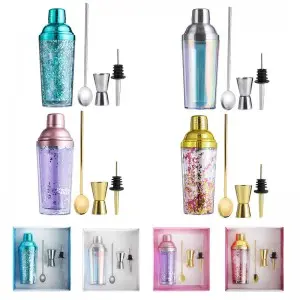Wine has long been an elixir of celebration and relaxation, often enjoyed during fine dining or intimate gatherings. However, have you ever wondered why the wine bottle itself doesn’t always end up in the recycling bin? In this blog post, we explore the various reasons behind the lack of recyclability of wine bottles and shed light on potential solutions to this pressing environmental problem.
Complex composition of wine bottles
One of the main reasons wine bottles are not universally recycled is due to their unique composition. Wine bottles have traditionally been made from glass, a material widely considered recyclable. However, several factors make wine bottles a challenge for recycling facilities. The presence of different colors and thicknesses, labels and seals often makes wine bottles incompatible with the mechanical sorting systems used by recycling plants.
Pollution and Efficiency Issues
Another hurdle in the recycling process is the inherent contamination inside wine bottles. Residual wine and cork residue can alter the integrity of the entire batch of recycled glass, making it unsuitable for certain applications or processing that requires more resources. Additionally, labels and adhesives on wine bottles are not always compatible with the recycling process, resulting in inefficiencies and potential damage to recycling equipment.
economic feasibility
Recycling programs are fundamentally driven by economic viability. Unfortunately, limited demand for recycled wine bottles reduces the incentive for recycling facilities to invest in the necessary infrastructure. Because glassmaking is energy-intensive, virgin glass can be cheaper and easier to produce, discouraging businesses from supporting wine bottle recycling schemes.
sustainable alternative
While wine bottles present recycling challenges, innovative solutions to the problem are emerging. One of the solutions is to use alternative materials for wine packaging, such as lightweight glass or even recycled plastic. These materials not only have sustainability advantages, but also reduce shipping costs due to their lower weight. Additionally, some companies are experimenting with refillable wine bottles to reduce waste and encourage a circular economy.
Consumer Awareness and Response
To bring about significant change, consumer education and active engagement are critical. By raising awareness of the recyclability challenges associated with wine bottles, consumers can make more informed purchasing decisions, choose brands that prioritize sustainability, and support initiatives that promote bottle recycling. Our collective voice can encourage businesses to invest in better bottle design and create a greener industry.
While the reasons behind the lack of universal bottle recyclability are complex, it is not an insurmountable challenge. By understanding the barriers facing recycling facilities, supporting alternative packaging materials, and educating ourselves and others, we can drive the changes needed to achieve a more sustainable future. As wine lovers, we can play an active role in raising awareness and demanding greener solutions, ensuring our celebrations and indulgences leave a smaller environmental footprint. Cheers to green wine culture!
Post time: Aug-09-2023
